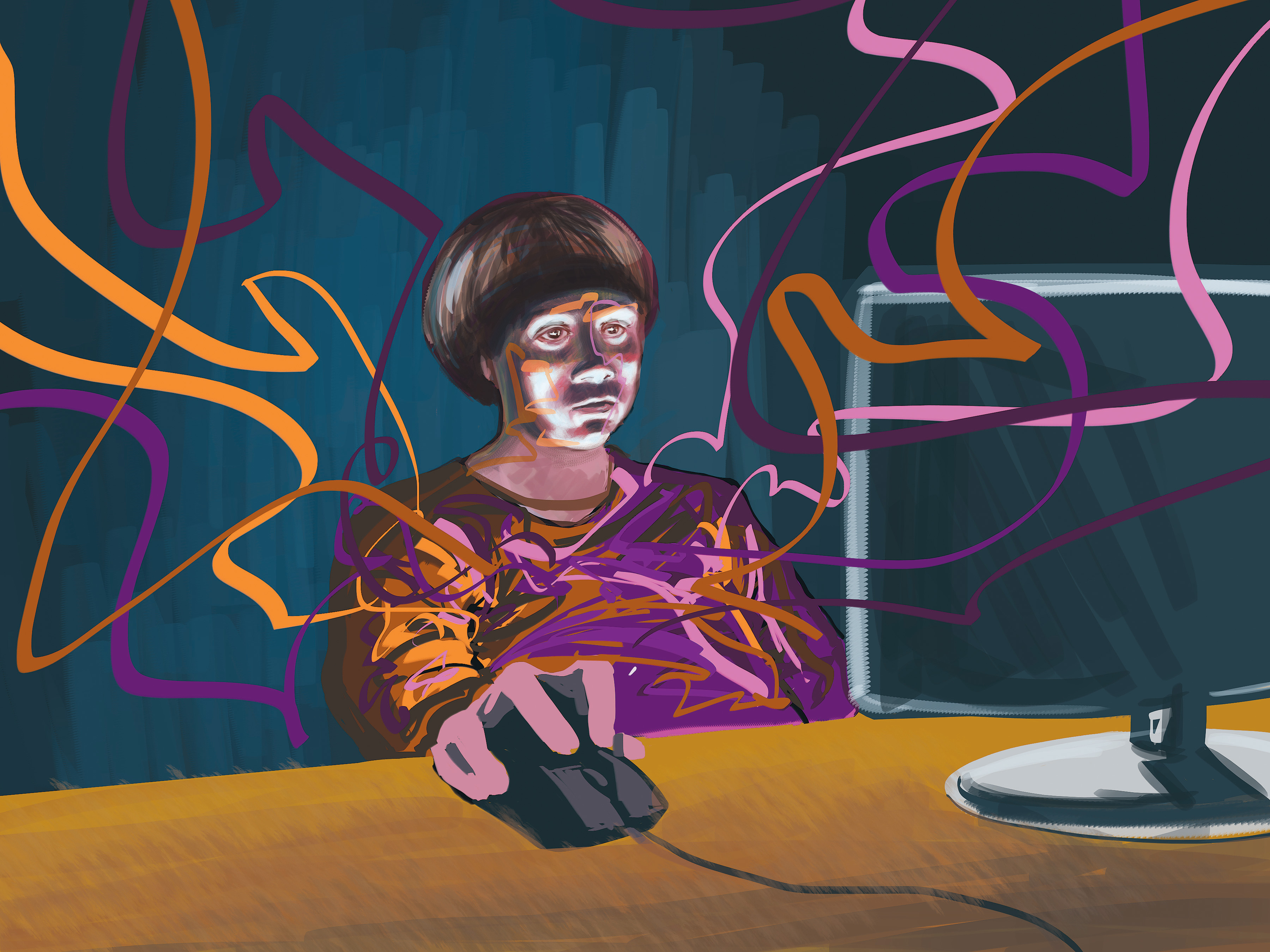You’re a young male. Your loins stir at a slight breeze. You might stand in confused arousal for a time contemplating such a zephyr’s mysterious ability to give you a raging 110 percent-er, eventually you hightail it back inside to the basement and fixate your sensory faculties onto the fleshy glow and inauthentic whimpers jumping off the screen of the family desktop.
Extrapolating wildly from my own experience as a young man coming of age at the advent of Internet porn accessibility, this is what sex looks like to many within my cohort: anal and girl-on-girl are par for the course; men and women (mostly white, some Asian) are jacked and tanned, shaved and bleached, plastic and enhanced, hung and buxom; women are subjugated to the point of humiliation amidst theatrical overtones of pain, and… ejaculate-to-the-face, delete browser history, repeat.
How might routine exposure to what might be considered garden-variety porn of the day influence young men and, by extension, their relationships with young women and trans people? Could “the onslaught of porn [be] responsible for deadening [the] male libido in relation to real women,” as Naomi Wolf writes?
This is not to imply that something is inherently wrong with any of the aforementioned aesthetics or sexual practices, but young men aren’t instructed to view Internet pornography through critical lenses. The medium invites eyes to glaze over and focus on nothing more than the task in hand. Young men aren’t taught to approach Internet pornography ready to question or care about the modes of production, the (un)ethical treatment and compensation of actors therein, the fetishization of certain races or body types and the normalization of others, or the commodification of nude bodies as mere ejaculate receptacles.
Anecdotally, it seems that to speak critically of porn culture—how it might influence sexual expectations and negatively shape how young men view women—is to court controversy.
“When I teach [about pornography] in class, I have trouble getting people to take up the [anti-porn] side of the debate,” said professor Neil McArthur, Associate Director for the Centre for Professional and Applied Ethics at the U of M.
“Generally I would say the trend is that pornography doesn’t have hugely negative effects, but I can’t say that the data is pointing all in one direction. [ . . . ] My suspicion is that it depends on whether you’re talking about the population as a whole—for which probably pornography is not going to be that negative—or whether you’re talking about people with certain vulnerabilities, for which there may be a dangerous element in the mix.”
Surveying research on the effects of pornography, with Dr. Neil McArthur:

“A recent study suggests that pornography re-enforces sexists attitudes among those consumers who already have such attitudes – but has no measurable effect on others (Hald et al., 2013). The most recent survey of the literature concludes that, as the use of pornography increases, the rate of sex crime decreases (Kutchinsky, 1991; Diamond & Uchiyama, 1999; Diamond, 1999; Tovar, E. et al. 1999; Ng & Ma, 2001; Landripet, Stulhofer, & Diamond, 2006; D’Amato, 2006; Diamond & Kontula, 2009; Diamond et al., 2010).”
In other words, for those individuals with social isolation issues or preexisting sexist attitudes, ready access to all manner of Internet pornography might exacerbate the problem. For the rest of the population, perhaps consuming porn is not so bad?
“People use to say, ‘I hate rap music, it’s misogynist.’ Some rap music is misogynist; don’t listen to the misogynist stuff or try to change the culture of rap so it’s less misogynist,” said McArthur.
“Yes a lot of porn is misogynist; it’s obnoxious; but you just change porn – you focus on the good stuff. There are people out there that I know that are trying to make more positive or ethical porn. The solution may not be to be anti-porn but to be pro better porn.”
The Manitoban extends an open invitation to men, women, queer, and trans* individuals to contribute “anti-porn” submissions in the future. Email [email protected] for more details
Follow Professor Neil McArthur on twitter at morallust or read his blog morallust.com


